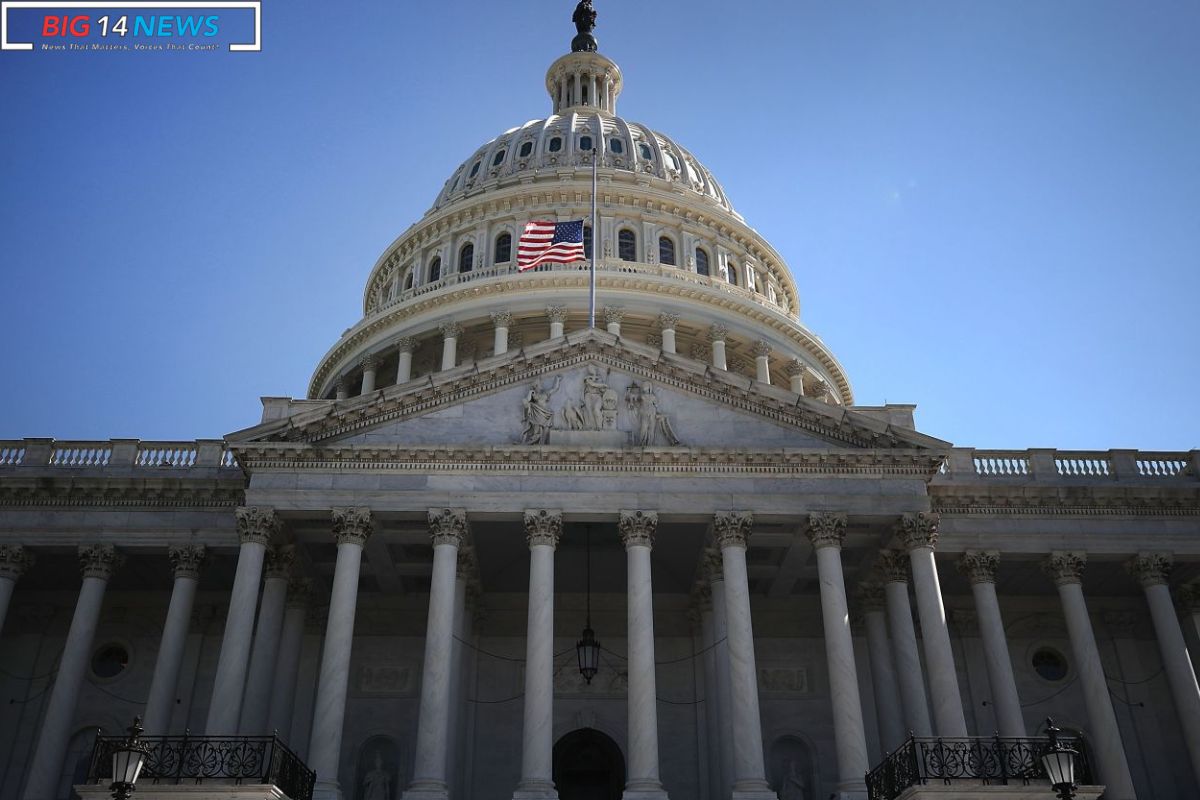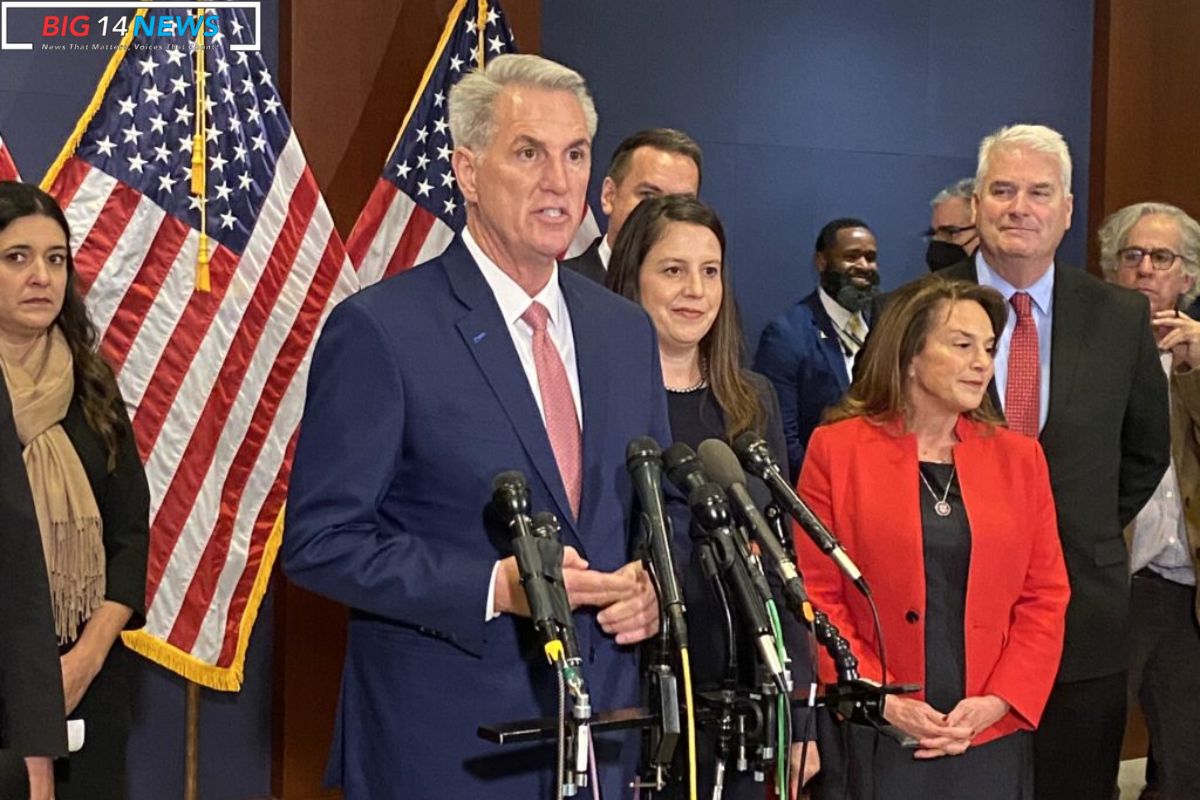118th Congress Breaks Record: The 118th Congress has garnered attention for its lack of productivity, setting a record for the fewest laws passed in decades. With the House under Republican control and the Senate led by Democrats, the divisions among House Republicans have hindered the legislative process.
This article will provide an analysis of the passed laws, explore the dynamics within the Congress, and present an outlook for the year 2024. Stay tuned for a detailed examination of this unprecedented situation.
Key Takeaways
- Partisan gridlock and deep divisions among House Republicans have hindered productivity in the 118th Congress.
- There have been difficulties in reaching bipartisan agreements and addressing pressing national problems.
- The divisions between the Republican-led House and the Democratic-controlled Senate have led to a record-breaking low number of laws being passed.
- Passed laws with limited impact, such as the renaming of VA clinics and commemoration of the 250th anniversary of the Marines, highlight the lack of progress on major policy issues.
Regarding the lack of productivity in the 118th Congress
Why has the 118th Congress been so unproductive?
Partisan gridlock is one of the key factors contributing to the lack of productivity. Deep divisions among House Republicans have hindered the legislative process, making it difficult to reach bipartisan agreements on important issues.
The impact of partisan gridlock on public policy cannot be underestimated. With the inability to pass significant legislation, the Congress has failed to address pressing national problems, such as healthcare reform, immigration, and climate change.
This lack of progress has led to a growing disillusionment among the public and a loss of faith in the ability of Congress to effectively govern. The consequences of this gridlock are far-reaching, affecting not only the current generation but also future generations who will have to bear the consequences of inaction on critical issues.

ALSO READ: US Senate Drama: Alabama Senator Tuberville Hold on Military Promotions Sparks Rule Change
Republican-led House and Democratic-controlled Senate
The lack of productivity in the 118th Congress can be attributed to the deep divisions and partisan gridlock between the Republican-led House and the Democratic-controlled Senate. This dynamic has had a significant impact on the legislative agenda and the ability to pass laws.
With the House and Senate controlled by different parties, many bills passed by the House face opposition in the Senate, making them non-starters. This has resulted in a limited number of bills becoming law.
Furthermore, the reconciliation process, which allows for expedited consideration of budget-related legislation, has been hindered by the partisan divide. The inability to come to a consensus on important issues has stalled progress and contributed to the record-breaking low number of laws passed in decades.
Examples of passed laws
Several laws have been passed by the 118th Congress, including the renaming of VA clinics and the commemoration of the 250th anniversary of the Marines. These examples demonstrate the Congress’s ability to address practical matters and honor important milestones.
However, these laws may not tackle major policy issues, which could contribute to the perceived lack of productivity. Despite the limited number of laws passed, it is important to recognize that even seemingly small legislative actions can have a significant impact on people’s lives. They can improve healthcare access for veterans and show gratitude to the brave men and women who serve in the Marines.
These laws also serve as a reminder of the Congress’s responsibility to address the needs and concerns of the American people, no matter how big or small.

Divisions among House Republicans
A significant number of internal divisions have hindered the productivity of House Republicans. The infighting within the party has had a significant impact on their legislative agenda, resulting in the Congress breaking records for the fewest laws passed in decades. The lack of unity among House Republicans has made it difficult for them to come together and pass meaningful legislation. This is evident in the removal of Speaker McCarthy by a small group of hard-right lawmakers, which has created a dynamic within the House that is surprising and unpredictable. The divisions within the Republican party have further exacerbated the already challenging task of advancing their legislative priorities. As a result, the productivity of House Republicans has been severely hampered, leaving a lasting impact on their ability to pass laws.
| Divisions among House Republicans |
|---|
| House Republicans’ infighting |
| Impact on legislative agenda |
Outlook for 2024
With numerous challenges and partisan dynamics expected to persist, the outlook for the 118th Congress in 2024 appears uncertain in terms of legislative productivity.
The 2024 legislative agenda will be dominated by pressing issues such as a Ukraine and Israel aid package tied to immigration policy changes, and the looming threat of a government shutdown with funding deadlines as early as January 19.
The impact of partisan dynamics will play a significant role in determining the success of the Congress in passing meaningful legislation. The deep divisions among House Republicans, as highlighted in previous discussions, will likely continue to hinder any bipartisan efforts.
Additionally, the limited productivity of the 118th Congress in previous years suggests that overcoming these challenges may prove to be a difficult task.

Conclusion Of 118th Congress Breaks Record
In conclusion, the 118th Congress has set a new record for the fewest laws passed in decades. The lack of productivity can be attributed to the divisions among House Republicans and the differing political ideologies between the Republican-led House and the Democratic-controlled Senate.
Despite these challenges, there have been some notable examples of laws that have been passed.
Looking ahead to 2024, it remains to be seen whether the Congress will be able to overcome these obstacles and increase its legislative output.
Also Read: Tragedy Strikes Fort Jackson Two Alabama-Born Drill Sergeants Found Dead”
Our Reader’s Queries
What is the party breakdown in the 118th Congress?
In the 118th Congress, as of January 2, 2024, the party breakdown is: House of Representatives – 220 Republicans (including 2 Delegates and the Resident Commissioner of Puerto Rico) and 213 Democrats (plus 3 Delegates), with 2 empty seats.
What is the racial makeup of the 118th Congress?
The 118th Congress is breaking records for its diverse representation. A total of 133 lawmakers in Congress identify as Black, Hispanic, Asian American, American Indian, Alaska Native, or multiracial. This diverse group makes up a quarter of Congress, with 28% in the House of Representatives and 12% in the Senate.
How many female members of Congress are there today?
California boasts 17 female representatives, Colorado has 4, and Connecticut has 2. Meanwhile, Delaware has 1 female representative. In total, 30 states are currently represented by women in the United States.
When did the 118th Congress begin?
The Congress sessions are scheduled to begin on the following dates:
– 1182: January 3, 2024 – January 3, 2023
– 1172: January 3, 2022 – January 3, 2021
– 1162: January 3, 2020 – January 3, 2019
– 1152: January 3, 2018 – January 3, 2017

